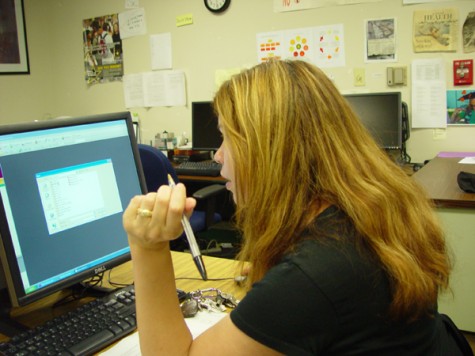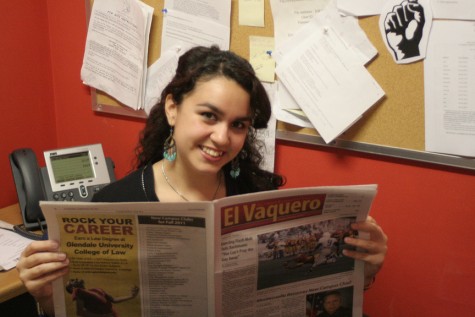Jorge Acevedo did not die.
His tragic story has become well-known to Glendale residents. Nine years ago, on the evening of Christmas Day, 1999 unknown gunmen attempted to carjack Acevedo’s new Lincoln Town Car as he drove to his home in the Mt. Washington area of Los Angeles.
He was shot three times: twice in his left leg and, critically, in the head at the base of his spine. He drove a few blocks more, lost consciousness and crashed into a parked car. He was in a coma for more than a month, but Jorge Acevedo did not die. For him, giving up was not an option.
The crime remains unsolved.
Acevedo spent two years working his way back through intense physical therapy and cognitive rehabilitation and he can now stand, walk with a walker and speak with some impairment. Even in his darkest hours he didn’t anticipate such outcomes. But he looks at it stoically
“I believe we are put here for a reason,” says Acevedo. “I’m still the same person that I was before I was shot, just much stronger.”
Acevedo, now 43, is just getting started. He uses a wheelchair to get around faster; he’s a busy man and he doesn’t let anything slow him down – not disabilities and certainly not self-pity. “Why complain?” he asks rhetorically. “There are others who have it worse. You still have to go on regardless of the situation.”
Acevedo’s talent is to recognize a lack or a need and come up with a solution. He is a founding member of the GCC chapter of Delta Sigma Omicron [DSO], an organization to help disabled students achieve academically and graduate from college. Non-Disabled students are also welcome and some members are training for careers in assisting the disabled -American Sign Language Interpreters and physical therapists among them.
Asked about the changes he has seen since 2001, Acevedo says that the main difference is that differently-abled students have become much more visible to the campus community.
Even small gestures mean a lot. “Every time I would go to the lower level cafeteria to buy a sandwich,” said Acevedo remembering how difficult it was to return to school after the shooting, “and without me even saying a word [this girl] would appear just like an angel being sent to me. She would open the door, which drew attention to me.
It seemed like everywhere I went she would be there to open the door.”
The campus has come a long way in terms of being wheelchair accessible, but most doors do not have automatic openers. “One day I told her, you’re like a guardian angel! She just smiled at me, but I haven’t forgotten her kindness. Thanks, guardian angel.”
More than anything, Acevedo wants people to “see the person, not the disability.” Assumptions are common; an individual may speak slowly, but that does not mean he is thinking slowly. Acevedo may not look like a jock, but he is a complete sports fanatic.
A former football player at Belmont High School, Acevedo also played Little League baseball as a kid. “I played baseball at Shatto Park,” he says “and soccer every weekend at Lafayette Park, back in the day.”
Being partially paralyzed has not diminished Acevedo’s competitive spirit and he is the team manager for the Lady Vaqueros soccer team on campus.
He credits men’s soccer coach Joe Agoston for giving him the inspiration to start a wheelchair basketball team, the Rough Riders. “If it wasn’t for Joe we wouldn’t have a team,” Acevedo says. “Joe [asked] if I was interested in playing wheelchair [soccer]. I said ‘yes’ and he gave me the info. Then it blew up. The competition is as described ‘murder ball.’ Power soccer has many rules, weird rules, but I will get used to them.”
Agoston is equally enthusiastic. “Jorge and I go way back,” he says, “but this is new. Have you seen one of their matches? Go! The boys are so into it, you’ll just have a ball.”
The Rough Riders is considered a Glendale team, but Acevedo drafted heavily from his club. They played their first and second games last month against a more established SoCal team, the Rolling Gauchos of Santa Barbara. They lost both games by a narrow margin. “We’re playing better,” Acevedo says, “they’ve [had the advantage] of playing together for five years.”
He looks forward to playing against them again in January with better equipment. “Without guards, we lack in the soccer court. If we are able to buy those guards we’ll be ready to demonstrate our ability next year. People can contact my team, the Roughriders, and make any type of donations to our organization through the GCC business office.”
In the meantime, Acevedo will be hitting the gym. “I’m working on my leg strength and my upper body, he says. “I’m training for a police department competition, the Baker to Vegas Challenge Race. Last year we were in second place, and this year we plan on winning!”
Acevedo might not look like a cop to the casual observer, but police work is at the core of his being. “I always wanted to be police officer,” he says. “My father was a police officer in Medellin, Colombia, our native country, for 15 years.” It was, and is, a family business. “My uncle, my father’s brother, worked as an undercover detective undercover for many years, then moved on to the USA. After I was born, we moved to America too.”
Acevedo obtained his associates’ degree in Criminal Justice from Glendale in 2004, continues to take classes, and has become a super-volunteer for the Glendale police department. The Glendale Police Department honored Acevedo as its Volunteer of the Year in 2003 and in April 2008, he was recognized by the U.S. Department of Justice for his dedication on behalf of America’s victims of crime.
“My unit handles financial crimes and burglary. [Sometimes] these crimes lead to bigger investigations. We [work] at the main station, but on weekends I am scheduled at the sub station at the Glendale Galleria and The America, handling calls and dispatching them from the front desk.” He also assists in the translation of Spanish to English.
In 2006, the Glendale Police department raised $3,875.00 to buy Acevedo a new wheelchair. “We paid the deductible to the insurance company ($1,438.60) and the remaining balance ($2,436.40) was given to the Acevedo family,” said Sergeant Tim Feeley, who planned the entire event as a surprise for the Acevedo family. All the money was raised in one month through anonymous, individual donations. “Glendale [police department] has been like a family to me,” says Acevedo.
Acevedo plans to transfer to Cal State Los Angeles earn a degree in Criminology. He wants to use his ability to investigate and solve crimes to help the differently-abled.
“Jorge was a member of the Glendale Police Department Citizen’s Academy class I recently participated in,” says Scott J. Lowe, a new friend. “He was buddies with everyone in the class by the end of the second night. He could probably charm Al Qaeda if given the opportunity.” Acevedo had a lot more experience than the rest of the class, but enjoyed the program which included everything “from being a hostage to shooting a assault weapon.”
His adamant refusal to let disabilities or public perceptions about the disabled has led to his newest role. In Sept. 2008, Los Angeles Mayor Antonio Villaraigosa appointed Acevedo to be a commissioner for the Disabled Access Process Appeals Commission, a term that will last until June 2013.
He found out about the commission from his brother Frank Acevedo, former student body vice president at GCC and business graduate from USC. “He encouraged me to put my talents into making a more friendly Los Angeles,” says Acevedo.
Acevedo knows all about housing that is not conducive to disabled access – his own house is a prime example. “I know the real challenges that one must go through,” he says. “I am hoping that one day I will receive a surprise home accessibility remodel in and around the house by Extreme Home Make Over.”
In the meantime, the commission tries to make things better for the disabled in Los Angeles’ public buildings. “What I do is authorize further construction along with improvements [to existing buildings] to make them more friendly and accessible to the differently-abled community in Los Angeles,” he explains. “I also handle any task that deals with disabilities such as housing, all Americans with Disabilities Act violations and transportation [issues].”
Jorge Acevedo does not give up his dreams; and all along he’s raising the profile of the disabled members in our community. He wanted to become a policeman, and he became one of the best volunteers the Glendale Police Department ever had. He wanted to play soccer, and he started his own team. Now he’s going taking on the right to access public buildings. “I want to show everyone that we are full members of society – we vote, and we have a voice in [local government]. As long as I have a voice, I will speak for this community.”


